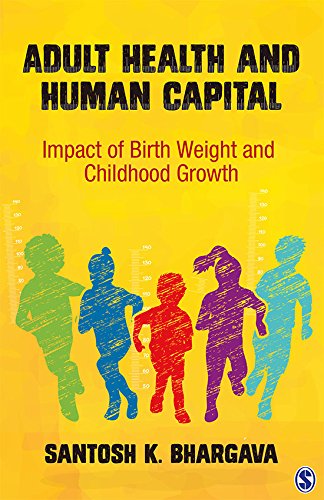If a baby is born small and thin, you would want to feed it so it would catch up to a more normal size, right? An infant is a small, brainless git who has to be toilet trained and fed forcibly because it does not know how much food it needs, right? A child who looks short compared to class-mates is not getting enough to eat, and must be force-fed to enable proper growth, right?
Well, if you asked mothers and grandmothers these questions 70 years ago, the answer would be a disdainful ‘yes, of course’, and the pediatricians then would have wholeheartedly agreed. But we live and learn, and we learnt how wrong we all were! Today, the answer to the questions above is a resounding NO, but many people still don’t know it. So, it needs lots of dinning into peoples’ heads that a small thin baby who is force-fed into rapid weight gain is at very high risk for obesity, diabetes, high blood pressure, high blood lipid levels, heart disease (collectively called the ‘metabolic syndrome’), and polycystic ovarian disease in girls. That an infant actually has a pretty good idea of how much food it needs, so when an otherwise well baby resists feeding, or spits/ vomits out food, respect the refusal. That a slowly growing child force-fed a high fat diet (‘give him buffalo milk, chocolates and chocolate mixtures, ice cream and pooris and jam sandwiches and pizzas’) may actually get very poor nutrition, which further hampers growth.
How did we discover our mistakes? Pioneers such as Professor David Barker and his team at Southampton found out that babies born small (low birth weight) were much more prone to have hypertension, type 2 diabetes and coronary heart disease as adults. A huge amount of research has gone into the Barker hypothesis, now called the ‘developmental origins of health and disease’ (DOHAD). Professor Shanti Ghosh, Head of Pediatrics at Safdarjung Hospital in Delhi, insisted that the cut off for low birth weight for western or African countries (2500 gm) could not be the same for India, where 2000 gm made more sense. Professor SK Bhargava, who worked with her and later took over as Head, Pediatrics, in Safdarjung, showed that babies who had rapid ‘catch up growth’ after being born thin (‘small for date’) were at high risk for metabolic syndrome in adulthood. This crucial data emerged from the ‘New Delhi Birth Cohort’ (NDBC), established in 1969 in Lajpat Nagar, which has tracked 8,181 births (the F1 generation) from pre-conception (their parents were F0), over the last five decades, to their children (F2) and grandchildren (F3 generation). This awesome work has given us major insights into health and disease relevant to low- and middle-income countries.

